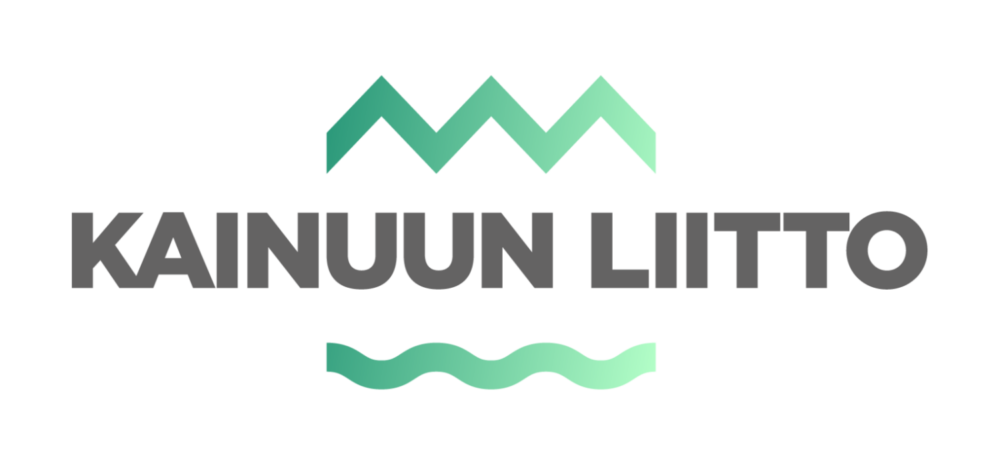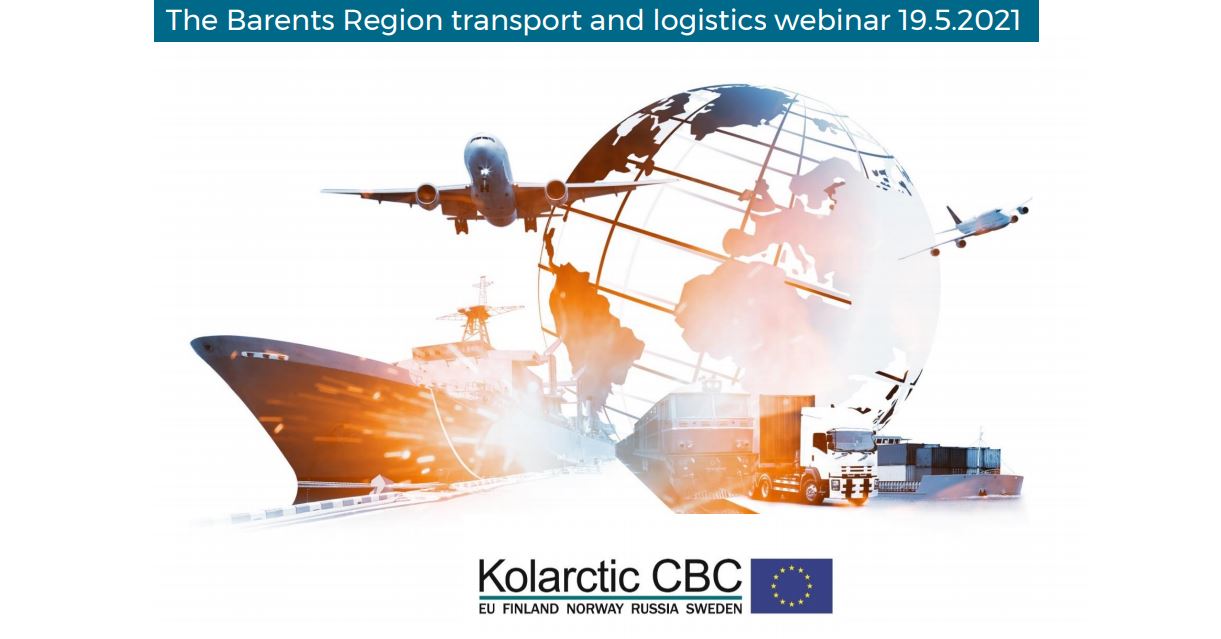In the first webinar arranged by NABL and BRTL projects, logistics of the Barents and Arctic regions were discussed. Experts and students from the project area and also from other regions participated the event. The presentations heard raised many kinds of thoughts about what logistics mean and what kind of factors are related to developing logistics. The project partners work side by side and are committed to goal oriented development activities, even though quick results usually aren’t to be expected in these kinds of projects.
Regardless of all the restrictions during the past year, the transport and logistics cooperation hasn’t seized. In fact, we feel that we have a good connectivity here in the Barents Region. On 19th May 2021, the Regional Council of Kainuu organized an international webinar in cooperation with partners and friends. Speakers and audience came from all over the Barents region and even from France and central parts of Russian Federation. Northern Arctic Federal University (NArFU) with students and future transport experts connected from Arkhangelsk, International Barents Secretariat (IBS) supported the event technically from Norway and interpreters of the event worked in Murmansk, Russia. Geography of the participants was genuinely wide, international and cross-border cooperated.
At the moment, there are two on-going projects in the Regional Council of Kainuu related to transport and logistics, both supported by the Kolarctic CBC Programme. Barents Region Transport and Logistics (BRTL) project aims to implement the Joint Barents Transport Plan on the regional level and Northern Axis Barents Link (NABL) project aims at improving east-west corridor traffic and cross-border mobility on the Northern Axis. Logistics might not be a theme that will appeal to the great public, but yet it has a big influence on both the society and economy on regional, national and global level. We see these projects as development tools, with people in the core.
As logistics fail, they may slow down economical actions or even cause a crisis to the economy. A recent example from the Suez canal is still fresh on our minds, having impacted different countries in many, some times surprising ways.
Developing logistics in cross-border cooperation is a slow process. We can’t forget about our operational environment, links between the Arctic, Barents and Northern dimension, as well as the development trends and the weak signals around us. Developing transport and logistics in the Barents region is affected by many kinds of themes and layers of decision-making, for example the global politics and economy, development trends and environmental aspects, but also the interests and the relative strength between countries and regions participating the cooperation. The challenge is to create dialogue between different parties, encourage experimentation and political change, thereby slowly enabling better logistical solutions. Even if the results were to be realized slowly, we feel that our cooperation runs smoothly.
Many Sides of Transport and Logistics
The Barents cooperation for developing transport and logistics in the northern cooperation area of Norway, Sweden, Finland and Russia has its own characteristics. In addition to national parties, the cooperation involves regional authorities. Transport and logistics issues are discussed in national and regional working groups and between those two. In addition, the Barents Regional Council and Barents Regional Committee and the International Barents Secretariat (IBS) are linked to the work. The two on-going Kolarctic CBC projects of the Regional Council of Kainuu, NABL and BRTL, are also directly linked to this cooperation.
The Barents region has vast natural resources and other potential that may help to gain a competitive advantage in the world markets. There are several cross-border transport corridors in the area, carrying both rail and road traffic, passenger traffic but especially freight traffic. There are high hopes for increasing traffic in the region, but at the same time the sensitivity and importance of the Arctic nature is recognized. There is an ever increasing pressure on reducing the environmental impact of transport and protecting the nature in the Barents region. Therefore, any planning activities require constant balancing between the economic and environmental aspects. While the goal is to support logistical development and decision-making between states and regions, safeguarding the Arctic ecosystem is important for us all.
- For example, the Northern Sea Route is opening up and is seen as a great opportunity in the Barents region, attracting many operators.
- The northern railway connections (Arctic Railway) have been under discussion for a long time, and the planning work is still ongoing.
- Air transport is the subject of much critical debate these days, but alongside rail transport, it is an important factor for the accessibility of Barents region.
- However, road transport is still the dominant mode of transport in the Barents region.
- Access to information, telecommunications and, in connection with this, data cable issues are important for the region.
Webinar Materials
You may watch the webinar recording in English at the YouTube of International Barents Secretariat IBS or browse the webinar presentations below in pdf format.
Professor Lassi Heininen:
Not narrowly about logistics – drawing up a holistic picture on global transformations & impacts
in English and in Russian
Chair of the Barents Regional Council, Mikael Bergström:
The role of the Barents Regional Committee in the cross border cooperation
in English and in Russian
Business unit manager Jarkko Rantala, WSP Finland Oy:
The Barents Euro-Arctic Region transport and logistics system, current status
in English and in Russian
Project Manager Juha Hyvärinen, Traficon Oy:
Northern Axis and Barents Link
in English and in Russian
Future Activities
During year 2021, the Northern Axis – Barents Link project will organize several interactive webinars related to developing this East-West transport corridor. During these events, the project studies and reports related to the bottlenecks and development of the transport corridor, will be discussed. Duration of each of the webinars is two hours. More information on the next seminars will follow.
The NABL project will soon publish a feasibility study on Vartius – Arkhangelsk road transport, including evaluation of impacts and environmental impacts, economic calculations as well as participation of the regional inhabitants for alternative plans.
You might also be interested in the webinar arranged by Karelia CBC project LOGOKA, with the theme of Finnish-Russian e-commerce (Verkkokauppa Venäjälle – mahdollisuudet ja käytännöt) on 25th May 2021 at 14-16 Finnish time. The webinar language is Finnish and the event is organized via MS Teams. You’ll find more information and the registration link here.
More Information
Barents Euro-Arctic Cooperation – home page – BEAC (barentscooperation.org)

